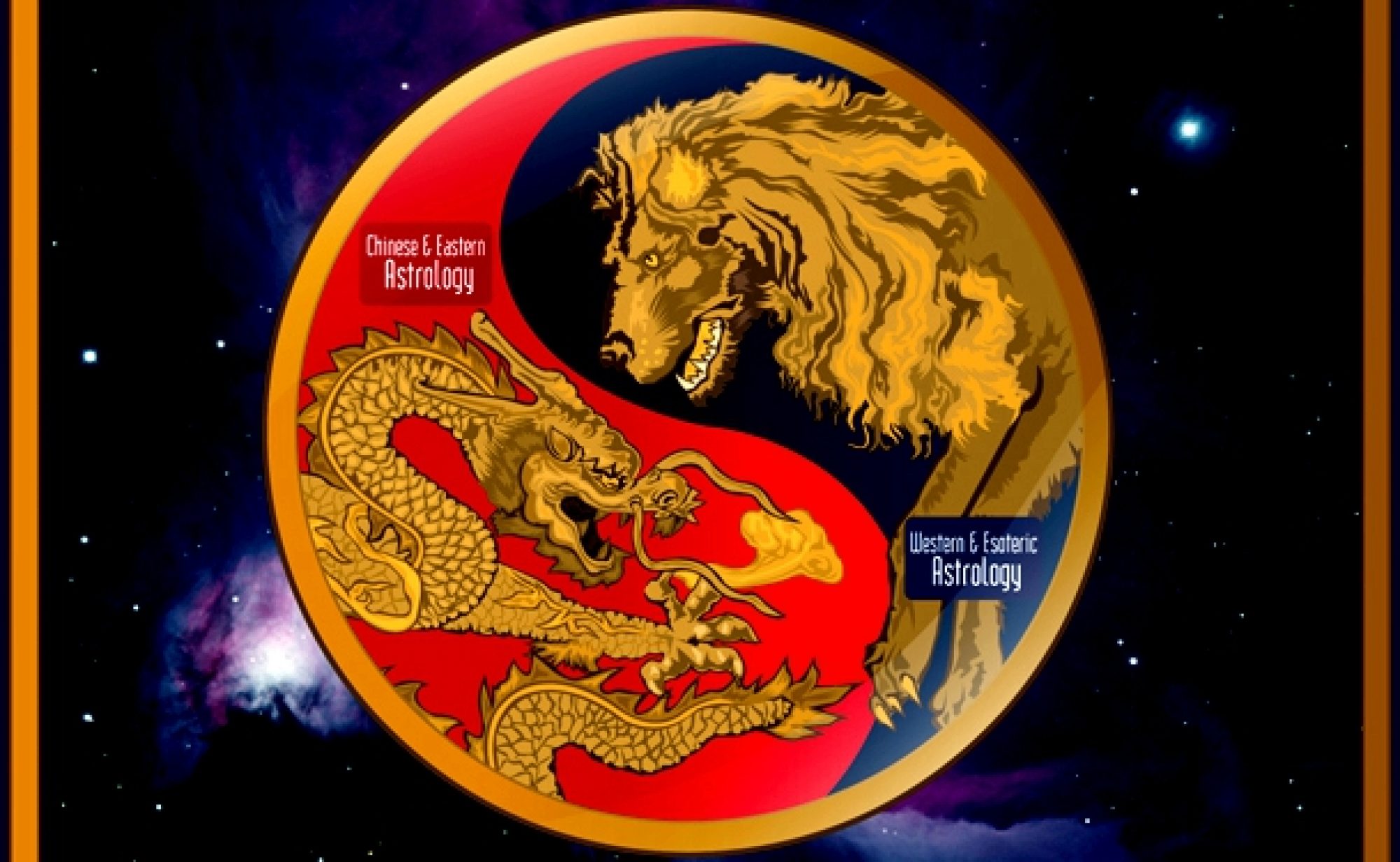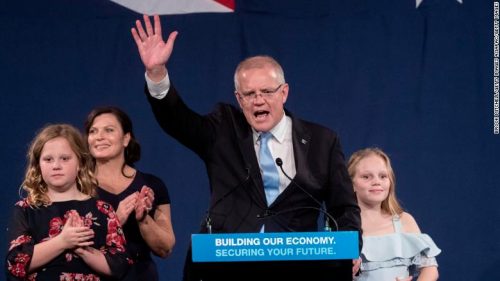Australia has voted, and in what was called a shock victory, the Liberals and conservatives won out. It should not have come as such a shock. Anyone paying attention to economic and employment figures could see what was coming. There were two big factors that decided the election, and they are indicated in the astrology, albeit in a backhanded manner.
We’ll get to the astrology in a moment. It was Queensland voters who swung the vote to the Libs. That was the first factor. Jobs were the big issue in Queensland. The reason for the Labor loss can be best summarized as follows:
When Bob Brown’s [of the Greens] anti-Adani convoy rolled through the Sunshine State demanding voters shun coal, he hammered a nail in Bill Shorten’s electoral coffin.
Jobs are key in Queensland and Adani’s Carmichael Coal mine will guarantee work.
Labor knew it, but couldn’t negotiate its environmental agenda, while backing the multi-million-dollar resource project.
That weakness left voters seeking job security and turning back to the LNP.
Labor was also too weak on either side of the Adani/climate change equation. In its attempts to appease everyone, it failed to appeal to anyone.
The Lib victory was very similar to what got Trump elected in the US. But the second big factor that got the coalition elected was as follows:
and this, to be blunter about it:
In looking at the chart of Australia (the swearing-in chart, shown in the election post), we see a common trend in elections throughout Australia’s history, and why the Libs/conservatives have generally fared so well. And it basically has to do with the Capricorn Sun/Saturn conjunction in the Australia chart, that plus its Taurus Moon. Australia is rich in resources. It is also quite a materialistic nation. That is not necessarily a criticism, but it does point to certain factors that are always at play in its government.
The combination of Sun and Moon with Saturn just listed is one that indicates the ‘lucky country’ description of the nation. That, plus the Virgo/earth placement of Mars trine the Australian Sun/Saturn, describes the mineral wealth and business sense that has defined the steady rise of Australia’s wealth and placed it at the top of nations in terms of per capita wealth, as trumpeted recently by The Sydney Morning Herald. The average Aussie may not realize or feel the latter, but that was what was recently revealed about the nation. It smacks a bit of propaganda.
The fact is, that Sun/Saturn conjunction is one that has a natural tendency to insecurity, even though it is bolstered by the Mars trine. Australia has a curious mix of a sense of boldness and independence, underpinned by hidden sense of insecurity that creeps in when things are not going so well. It is the Mars trine to Saturn which has made the nation so materially successful. The fifth house placement of Mars has also shown the great success Aussies have seen in the sports arena. We punch way above our weight there. That same Mars, though, is the apex of a t-square with a Uranus/Pluto opposition as the base along the 2nd/8th house axis (banking, insurance and joint finances), which can be a very hard and unforgiving combination. Among other things, the 5th house rules income from the housing market, and shows the volatility of the same, as well as speculation and speculators in general.
It is important to put the preceding in context if we want to understand why the Libs have won this election, since the polls forecast a Labor win. If economics win elections and Australia is so rich, then why are people insecure? According to the report cited in the article, Switzerland was listed as the richest nation per capita for adults, Australia was second and the US was third. If you ask over half of Americans if they feel rich, seeing that they now live from paycheck to paycheck and have less than $400 in the bank, they might have a few questions about that Credit Suisse report. The problem with the report is that it is like so many other financial reports – the figures reflect an average, and often they are deliberately fudged. It is the same with job figures. If a few billionaires in the US own most of the wealth and that is averaged against the millions who have to choose between paying rent or for medical care, then sure – the US is very rich. The problem is, the majority of Americans are not. Far from it. And it is a similar story in Australia. That is why we see populist leaders rising across the world. People see that the system is rigged against them and they choose the parties that promise them security and continued prosperity.
And then there is the opposition to the current government. Just as we see with Democrats in the US, Labor cannot seem to get their message straight, nor present it properly and seem increasingly out of touch with the voter base they are supposed to represent, witness one of their ads that won plenty of comment:
Conservatives in general, worldwide, are better at presenting themselves in terms of driving their message home. The left and progressives have yet to learn, it seems, that appealing to people’s emotions instead of citing facts is what gets politicians across the line. The trend is likely to continue.
There is one last point to consider, though we could go on and on. Australia’s economy has been booming since the onset of the mining boom in 2003. Australia has been very lucky in recent years, especially if one had a job in the mining sector. Farmers and general manufacturing, though, have really suffered. But that luck from mining is starting to run out. The peak was reached in 2018 or thereabouts and is forecast to drop off steadily through the next decade. That is why the Adani mine in Queensland was such a hot-ticket item for Queenslanders in the election.
I was living in Oz when the 2008 recession hit. It killed the manufacturing base that was the bread and butter of my business (machine tool repairs). Except for a few customers who did jobs for the mining industry, a lot of the shops I could count on for work – many of which were subcontractors for the automotive industry – closed their doors or did serious downsizing. It was one of the deciding factors that led to my leaving Australia, but not the main one. I have since been told by people in the know there that it was a good decision. Australia has essentially lost its automotive manufacturing, which at one time was one of its biggest employers.
The point here is that when the mining jobs start to dry up and most other manufacturing is gone, as it is already greatly under stress, what then? Many politicians have counted on the mining boom to go on forever. What happens if China enters economic crisis? China was and still is our biggest export base. The housing price boom was driven by foreign investors, mostly Chinese. And when that income goes, as is currently happening? We can say, oh, she’ll be right, mate! But will it? This is not to strike a note of fear, but to be realistic. Successive governments have not planned for any sort of future that features shortfalls.
The mining boom, if we use common sense, should have produced a huge nest egg for us. It hasn’t. Instead, that money has gone to speculation and into some pretty deep pockets. The Howard government, who were in power during the steep rise of the boom, were the biggest spenders, spending 90% of what was gained through it. If they had been smart, or prudent, they would have done something similar to Norway, and used the income from their resources for the benefit of their public, to build infrastructure (as China has) and to have as a buffer against hard times. Those times, from looking at other economies worldwide, are upon us.
Many Aussies thought they were voting for security in this election. There is no evidence that they chose such. Quite the opposite. What we will see if/when things get worse is more cuts to public services, social programs and calls for the ‘necessity’ of austerity in general, more finger-pointing at immigrants, dole-bludgers and so forth. Instead there is no proper planning for keeping the gains from the exports at home and reinstating or supporting other manufacturing bases, along with really creating sustainable jobs instead of jobs based on what are finite resources and dependent on the whims of an increasingly fickle and unstable market. We could lead the world in so many more areas than we already do. Where are our politicians with vision and the will to make the needed changes? Neither of the major parties are inclined to do so.
As mentioned in the election article, there was a solar arc of Neptune to Venus and Mars, and it was that direction that decided the election, astrologically speaking. Neptune rules the voting public. It also rules uncertainty, deceptive practices and causes insecurity. The videos of the campaign ads shown before are a good example of how that Neptune worked on the sentiments of the public. Labor and the other parties should take lessons from them in any future campaigns. The neoliberal economic order is coming to an end. For now, we are stuck with the same old order.
The multipolar world is emerging. Australia finds itself in a unique and promising position in the world. The years ahead will be challenging, to say the least, but if the Moon/Saturn/Mars combination holds true to form, we will get through it and with any luck or skill at all we will emerge in a good place and weather the worst. But it will mean overturning part of the old political order that has guided the nation in recent decades. And that also means disentangling ourselves from certain other overseas connections. That’s an article for the future.
Featured pic from CNN

